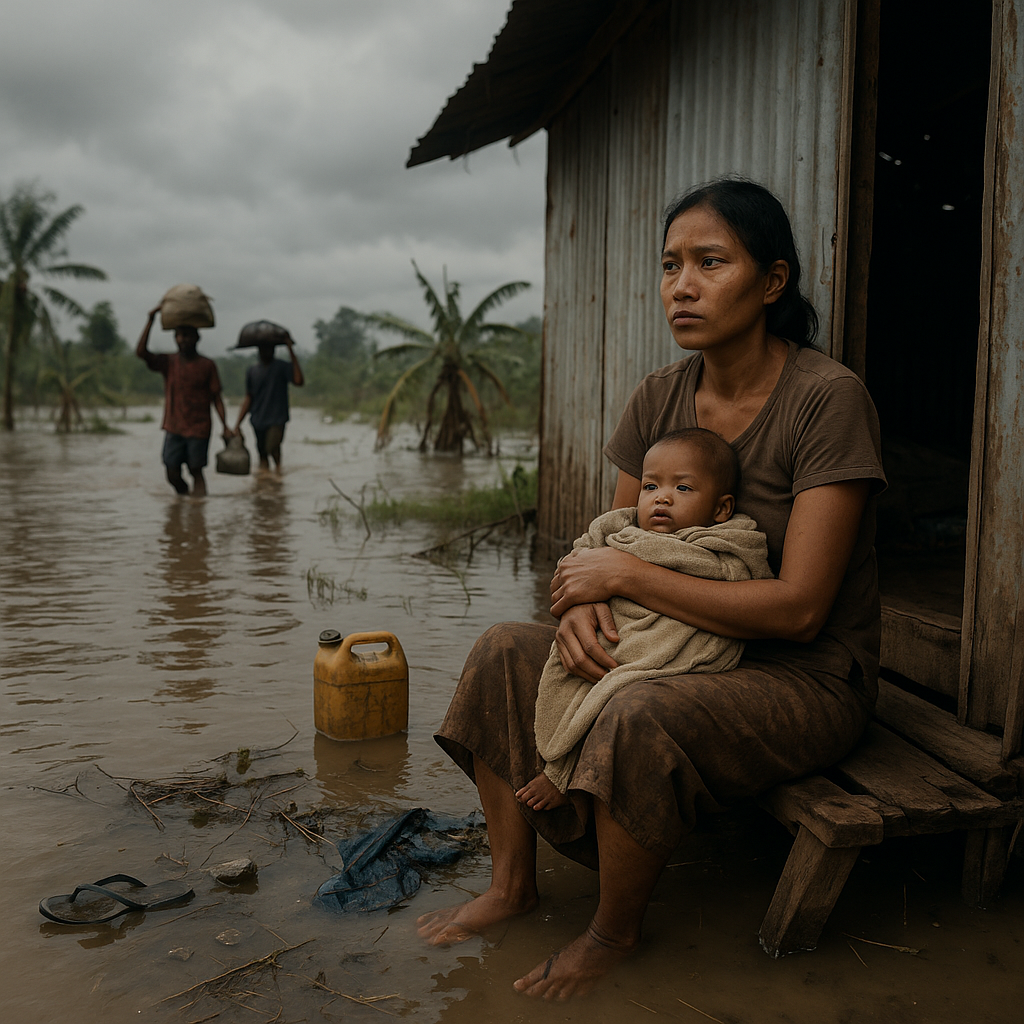Global Pact to Expand Social Protection by 2% Annually Launched at FfD4
The initiative sets an ambitious, yet realistic target: to increase social protection coverage by at least two percentage points per year in countries with limited systems.

- Country:
- Spain
On the sidelines of the 4th International Conference on Financing for Development (FfD4) in Seville, Spain, the International Labour Organization (ILO) and the Global Partnership for Universal Social Protection (USP2030) launched a bold global initiative aimed at increasing social protection coverage in countries where it is still far from universal. This initiative is a key deliverable under the Sevilla Platform for Action, and was officially enshrined in paragraph 27i of the FfD4 Outcome Document, reflecting a renewed commitment by UN Member States to expand social protection as a development and human rights priority.
A Concrete Goal: 2 Percentage Points of Coverage Per Year
The initiative sets an ambitious, yet realistic target: to increase social protection coverage by at least two percentage points per year in countries with limited systems. Currently, 47.6% of the world’s population lacks access to any form of social protection, leaving billions vulnerable to health shocks, unemployment, disability, or old age without support.
Jayati Ghosh, Professor of Economics at the University of Massachusetts Amherst, opened the launch event with a stark reminder:
“In a world where austerity and fiscal tightening threaten vital public services, securing a global commitment to expand social protection is a landmark victory.”
Why 2 Percentage Points? Proven Feasibility
ILO Director-General Gilbert F. Houngbo reinforced the practicality of the target.
“Don’t say this is too ambitious. From 2015 to 2023, 42 countries—most of them in the Global South—achieved this rate of annual increase in coverage,” he said. “This initiative isn’t just about numbers. It’s about safeguarding lives, enabling decent work, and building resilience for millions.”
Houngbo also clarified that the 2-percentage-point goal serves as a minimum floor.
“At the country level, the ILO works far beyond this threshold. We focus on making benefits adequate, inclusive, and sustainable.”
South Africa, Brazil, Uzbekistan Rally Behind the Initiative
The launch drew enthusiastic endorsements from high-level global leaders:
-
Maropene Ramokgopa, South Africa’s Minister in the Presidency for Planning and Chair of the G20 Development Working Group, emphasized:
“Social protection isn’t just a cost—it’s an investment in human capital and economic productivity.” She called for progressive tax reforms, curbing illicit financial flows, and sovereign debt restructuring as essential steps to expand fiscal space.
-
Wellington Dias, Brazil’s Minister for Social Development and a key driver of President Lula da Silva’s Global Alliance Against Hunger and Poverty, stressed that
“Progressive taxation both fights inequality and funds the safety nets people need to live with dignity.”
-
A representative from the Government of Uzbekistan spotlighted the UN Global Accelerator on Jobs and Social Protection for Just Transitions as an essential vehicle to help countries map out pathways for financing and delivering social protection.
Civil Society and Labor Support the Commitment
The International Trade Union Confederation (ITUC) also threw its full weight behind the initiative. Giulia Massobrio, ITUC’s TUDCN Coordinator, highlighted:
“Social protection is a core pillar of the New Social Contract we are demanding. It must be complemented by formal job creation, living wages, equal pay, care economy investments, and skill-building.”
However, not all were satisfied with the pace. The Global Coalition for Social Protection Floors welcomed the 2-percentage-point goal but warned it falls short of ensuring universal and adequate coverage by 2030. The Coalition urged countries and the ILO to go further, faster.
In response, Houngbo emphasized the broader vision behind the target:
“It’s about anchoring this issue in global financing frameworks for the next decade. But we at the ILO are always pushing for comprehensive system building—not just incremental expansion.”
Expanding Fiscal Space: A Cross-Cutting Priority
A recurring theme throughout the session was the urgent need to expand fiscal space through:
-
Progressive taxation policies
-
Debt restructuring
-
Combatting illicit financial flows
-
Blended finance and international cooperation
The goal is not just to increase coverage, but to guarantee sustainable funding for robust, rights-based social protection systems that can withstand economic shocks and demographic changes.
Sevilla’s Significance for Social Protection
The FfD4 Conference served as a pivotal platform for repositioning social protection at the center of global development financing. UN Deputy Secretary-General Amina Mohammed earlier described the event as a turning point for global action on inequality and fiscal justice.
The social protection initiative, as part of the Sevilla Platform for Action, now becomes a key deliverable for UN Member States to integrate into national strategies and multilateral development plans.
Looking Ahead: Monitoring and Accountability
The ILO and USP2030 will coordinate efforts to track progress against the 2-percentage-point goal. Countries will receive technical assistance, policy advisory services, and opportunities for South-South learning to accelerate reforms and share best practices.
With 2030 fast approaching, this initiative marks a decisive step toward ensuring that no one is left behind in the journey toward universal social protection.
- READ MORE ON:
- Social Protection
- ILO
- USP2030
- FfD4
- Sevilla Platform for Action
- Global Initiative
- UN Financing for Development
- Jayati Ghosh
- Gilbert Houngbo
- Progressive Taxation
- Fiscal Space
- Social Justice
- SDGs
- Universal Coverage
- ITUC
- South-South Cooperation
- New Social Contract
- Decent Work
- Human Capital Investment








